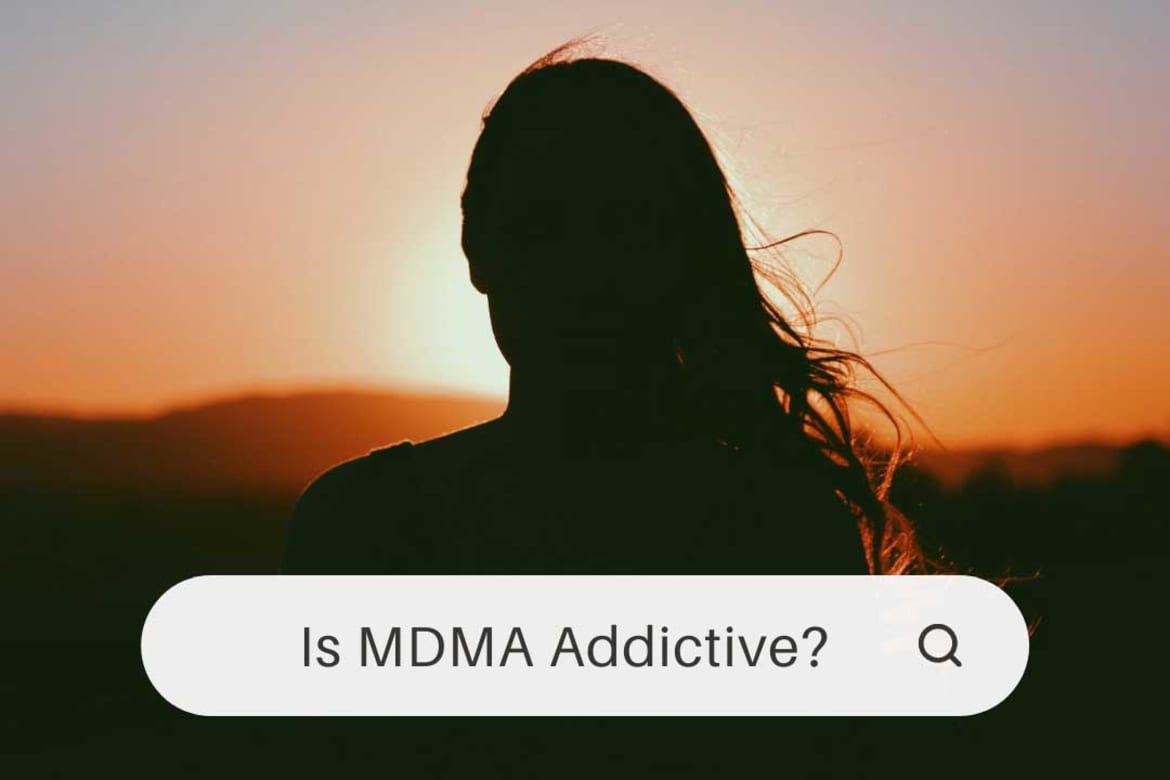Molly Addiction Treatment
Substance use disorder and self-destructive habits don’t have to take over your life forever. Read more about Molly addiction treatment.
Get Help Today
MDMA, also commonly known as “molly” or “ecstasy” is an illegal, synthetic drug that alters an individual’s mood and perception upon use. According to the National Institute on Drug Abuse (NIDA), similar to drugs in classes of stimulants and hallucinogens, MDMA leaves individuals experiencing increased energy, pleasure, and emotional empathy while distorting their sensory perception and sense of time. Individuals most typically consume molly orally as it is found in capsule form, but is also often snorted through powder form.
How Molly Works
MDMA impacts the brain by increasing the presence of hormones such as dopamine (a hormone that produces energy and acts as a reward system to reinforce behaviors that are pleasurable), norepinephrine (a hormone that increases heart rate and blood pressure), and serotonin (the hormone that regulates sleep, mood, sexual arousal, and trust). Upon entering the system, MDMA exerts its effects quickly, which typically leads to sensations of pleasure and inevitably leads individuals to continue using MDMA as the pleasant-feeling effects, even when harmful, reinforce this behavior.
Is MDMA Addictive?
MDMA has been proven to be highly addictive. One single-use can quickly turn into continued use of, dependence on, and tolerance to MDMA. This leads individuals to use greater quantities of MDMA to experience the same effects, which in turn can cause greater detrimental impacts to an individual’s health and well-being. When an individual has to begin using a drug to get through the day and in greater quantities to experience the same effects, it is likely that a substance abuse disorder has developed–especially for those genetically, environmentally, biologically at-risk for developing a substance use disorder. Experiencing symptoms of withdrawal when not using MDMA, such as nausea, vomiting, loss of involuntary shaking, muscle tremors, increased anxiety and depression, and inability to concentrate, are also telltale signs that substance use disorder is present.

Short-Term Effects of Molly
MDMA causes many short- and long-term side effects on the body and mind. Short-term effects include, but are not limited to:
- Nausea
- Muscle cramping
- Involuntary teeth clenching
- Blurred vision
- Chills
- Sweating
- Irritability
- Impulsiveness and aggression
- Depression
- Sleep problems
- Anxiety
- Memory and attention problem
- Decreased appetite
- Decreased interest in and pleasure from once pleasurable activities
- Unsafe sexual behavior
With continued use, these short-term effects can become normal for an individual, and detrimental long-term effects can also begin to form.
Long-Term Effects of MDMA
One of the most significant long-term effects of MDMA use is the imbalance and depletion of hormones such as dopamine, norepinephrine, and serotonin. This imbalance diminishes the brain of its natural production and presence of these vital hormones, leading to depletion. It is also another reason why an individual feels as if they must rely on MDMA to produce these hormones for them, leading to altered and prolonged states of distortion in an individual’s perception and their psychological and physiological well-being.
More specifically, chemical imbalances in the brain created by MDMA can lead to long-term side effects such as:
- Poor memory
- Prolonged depressed mood
- Confusion
- Anxiety
- Paranoia
- Impairment of attention processes
- Arrhythmia (irregular heartbeat) and heart damage
- Irritability
- Impulsivity
- Sleep disturbances
- Concentration difficulties
- Lack of appetite
- Heart disease
- Decreased cognitive function
- Brain swelling
Long-term side effects of MDMA addiction can sometimes, but not always, be restored to homeostasis and improved states of functioning. However, this is only possible through treatment at a rehab center that specializes in treating substance use disorders and utilizes a variety of evidence-based and holistic therapeutic modalities.
Treatment for MDMA Addiction
Recovery from substance use typically begins undergoing medically supervised detox, during which individuals are supported in withdrawing from the substances in their system in a supervised environment to keep themselves and those around them safe. After this step, individuals typically enter treatment at a residential treatment facility that specializes in the treatment of substance use disorders. This is where treatment services at Hawaii Island Recovery can come into place. We support individuals where they are in their recovery with various types of treatment from residential care to outpatient aftercare.

After residential treatment, many individuals transition to a lower level of care, such as the treatment of outpatient aftercare programming. Many of our clients begin in residential care and slowly transition from higher levels of care to lower levels of care where they have continued support according to their needs for healing and recovery as they reintegrate into their everyday life. Without transitioning to lower levels of care after residential treatment, treatment is not as effective and relapse is more common.
At Hawaii Island Recovery, we are committed to providing you with evidence-based, holistic, and trauma-informed care you need to continue making strides in your recovery and experiencing long-term healing. Our diverse treatment options from medical detox to experiential programming allow you to be supported holistically in your healing journey, where you can get to the roots of why addiction has manifested in the first place. Additionally, you will learn the tools needed to successfully maintain sobriety and recovery in your life even after leaving treatment.
Substance Abuse Treatment in Hawaii
We are committed to meeting you where you are and supporting your treatment needs by using a whole-person approach to healing where you are holistically supported. You will also be in an environment that promotes healing, as our center is located on the Big Island of Hawaii where nature abundantly surrounds our residential residences. At Hawaii Island Recovery, you will not only experience healing but be provided the space to cultivate meaningful relationships and create memories with both others and yourself.
Substance use disorder and self-destructive habits don’t have to take over your life forever. You possess the ability to heal, and healing is possible with treatment available at Hawaii Island Recovery, a drug and alcohol inpatient treatment center. Call us today at (866) 390-5070 to talk to our admissions team to begin your journey to recovery today.
Get Help Today!
If you or a loved one need help, call Hawaii Island Recovery toll-free right now.
866-390-5070 Hawaii Island Recovery
Hawaii Island Recovery 









